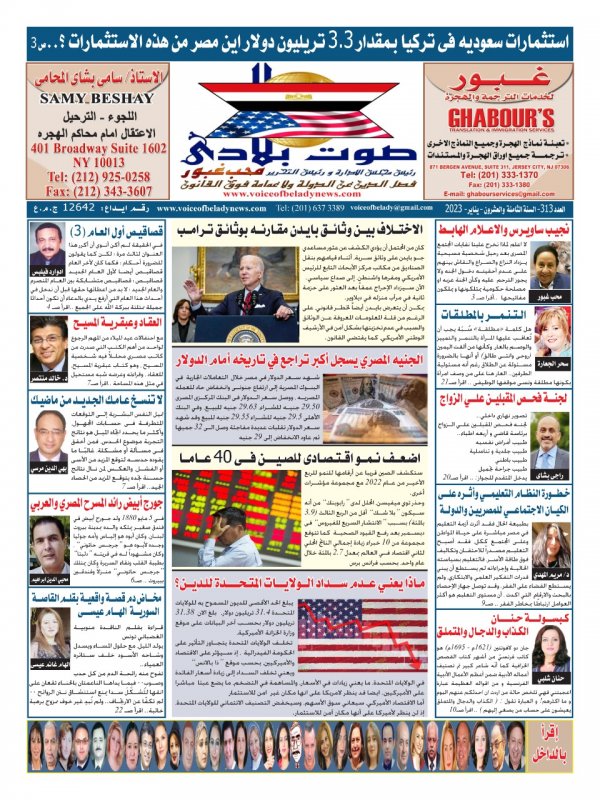Cohesion is the interdependence between a group of countries in a way that allows achieving dynamic coherence that requires joint action among them to achieve a number of agreed-upon goals.
Therefore, cohesion must be based on a clear vision about the desired goals, so that the courses of action are determined precisely to prevent the emergence of any contradiction between the countries that share the goals.
And the interdependence seems more clear..or so it should be. If it links the group of states that move according to it a national bond. Because in this case it means a certain relationship between the parts of one body.
It includes, of course, specific rights and obligations for each of the other parts.
It is justified by the movement of that body, whether in the actions it emanates from or the attitudes it expresses towards the actions of others. That is why this type of interdependence is described as an organic interdependence.
And organic interdependence expresses a situation as close as possible to constancy and stability in the relationship between the elements and parts of the body.
In this sense, he does not allow the existence of volatility and tension in this relationship, or that these two cases represent a prevailing trend, because then they lead the national community in a direction that diminishes with its aspirations and goals, and makes the process of unitary political development impossible at all.
There are many levels of interdependence, such as cooperation, coordination, solidarity, and agglomeration, each of which expresses a state of interdependence in terms of weakness and strength. The first level is the weakest of these levels, while the fourth level is the most powerful.
This means that successive work according to these levels represents a deepening and development of the same state of interdependence.
Cooperation is based on the exchange of opinions and points of view between two or more countries on specific issues. If the agreement of opinions helps to develop relations between the specific parties, then their differences do not have negative effects on those relations, because the meaning of cooperation does not mean always moving in the same direction, nor does it It includes specific obligations, as it is sufficient for each party to know the actions of the other parties on the international stage.
Coordination means a higher level of cooperation. However, it does not go far from it, as the matter is not limited to the exchange of opinions and viewpoints, but rather to a kind of planning to determine the dimensions of the movement on the international stage, and the associated movement homogeneity.
But without necessarily being accompanied by certain obligations on the part of each party towards the other parties in its individual move.
As for solidarity, it means a different case, as it goes beyond what is imposed by cooperation and coordination to link the movement of the parties on the international stage with limited and explicit rights and obligations according to decisions issued by political leaders, or according to certain treaties. Without them, it is not possible, of course, to achieve the desired goals, whether they are tactical or strategic.
The bloc represents the highest degree of cohesion. It arises as a result of the conclusion of a treaty between two or more parties, where it refers to it explicitly and clearly, and thus defines the rights and obligations associated with it. Under it, states move as a group according to one principle that they adhere to, and each of them is responsible for any violation of it.
The conglomeration may be embodied in a personality independent of the personalities of its members. Alliances, such as the Warsaw and Atlantic alliances, are examples of what this level of interdependence can be.
The application of the principle of national cohesion in the context of Arab political development expresses a specific stage that is a prelude to a different situation in this context in which negative factors and variables, i.
In light of national cohesion, a balance is achieved between the elements of the Arab regional system on the basis of organic interdependence that allows achieving functional integration between these elements, which means that all of them work through specific roles that preserve each one of its status and position. and desired goals.
The commitment to work is done with the necessary efficiency, and in a coordinated effort towards those goals and objectives. The absence of cohesion means the absence of interdependence due to the divergence of goals and the decrease in goals between the elements of the system, which means that they move in different directions, and then the balance is disturbed among them, which leads to the weakening of the Arab system in general. negatively affecting its development.
National cohesion helps to crystallize the Arab will, which is indispensable, whether in determining the course of the political development of Arab society or in facing the various problems that this society suffers from.




 رئيس التحرير يكتب : من التراب وإلى التراب يعود .. تحويل جثث الموتى إلى سماد عضوى
رئيس التحرير يكتب : من التراب وإلى التراب يعود .. تحويل جثث الموتى إلى سماد عضوى
 رئيس التحرير يكتب : لماذا تصر الحكومة على استمرار شريف أبو النجا رئيسا لمستشفى 57357 رغم الشواهد العديدة على فساده
رئيس التحرير يكتب : لماذا تصر الحكومة على استمرار شريف أبو النجا رئيسا لمستشفى 57357 رغم الشواهد العديدة على فساده اقرأ في العدد الجديد ( عدد يناير ٢٠٢٣ ) من جريدة صوت بلادي
اقرأ في العدد الجديد ( عدد يناير ٢٠٢٣ ) من جريدة صوت بلادي









